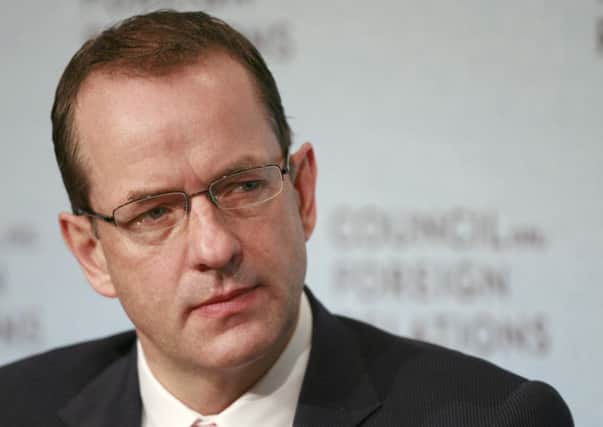‘Dire’ slump in sales hits GSK after Chinese corruption claim


Chief executive Sir Andrew Witty said GSK’s China business had suffered most where other drug options were available - as with its top-selling lung medicine Advair/Seretide, for which AstraZeneca’s Symbicort is an alternative treatment.
The fall in Chinese sales, described by Deutsche Bank analysts as “dire”, was steeper than investors expected and Sir Andrew told reporters it was too early to say when the business might recover from the Chinese-government probe into allegations that GSK had bribed doctors to boost drug sales.
Advertisement
Hide AdAdvertisement
Hide AdGSK could also end up facing hefty fines, although the CEO said he believed existing legal provisions were sufficient – and he stressed there was “absolutely no question” of GSK pulling out of China.
“We are totally committed to China,” he told reporters in a conference call on Wednesday.
“This is a very important business to GSK. China is a critically important country of the future.”
Although Britain’s biggest drugmaker generates less than four per cent of its sales in China, it has invested heavily in the country, where it employs 7,000 staff and has five factories and a research centre.
Advertisement
Hide AdAdvertisement
Hide AdWorldwide, GSK’s sales were flat at £6.51bn in the quarter, generating core earnings per share (EPS) of 28.9 pence, 10 per cent higher than a year ago. Analysts, on average, had forecast sales of £6.65bn and core EPS, which excludes certain items, of 27.2p.
The higher-than-expected earnings number reflected lower costs, including reductions in spending on research and development (R&D) as several expensive late-stage clinical trials reached a conclusion.
Sir Andrew said the trend of lower R&D costs was likely to continue into 2014.
GSK also made savings on post-retirement healthcare benefits for its staff.
Advertisement
Hide AdAdvertisement
Hide AdThe sales shortfall, however, knocked the shares two per cent lower during trading in a flat European sector for healthcare stocks.
The company reiterated that it expected sales growth for the year to be around one per cent in local currency terms, with EPS rising by between three and four per cent.
GSK’s reputation has been tarnished and its management team in China left in disarray by Chinese police allegations in July that it funnelled up to three billion yuan to travel agencies to facilitate bribes to doctors and officials.
Industry insiders and analysts had been expecting that the police probe – one of Beijing’s biggest into a foreign company – would dent sales significantly in the three months to September, perhaps by around 30 per cent.
Advertisement
Hide AdAdvertisement
Hide AdIn the event, Chinese sales of pharmaceuticals and vaccines were down 61 per cent in the quarter to £77m.
Other multinational drug companies are also being investigated but GSK has suffered the most damage from the scandal as many Chinese doctors have shunned its sales representatives.
Swiss rivals Roche and Novartis, by contrast, both saw continued growth in their Chinese drug sales in the third quarter.
Although China accounted for only 3.6 per cent of GSK’s global drug sales last year, the company has been investing heavily in the country.
Advertisement
Hide AdAdvertisement
Hide AdBefore the scandal, GSK’s China sales had risen by 14 per cent year-on-year in the three months to end-June.
Emerging markets are an important plank of Sir Andrew’s growth strategy as he grapples with slower uptake of GSK’s products in the developed world.
GSK has recently seen some encouraging progress with new drugs in the pipeline – including approvals this year for new treatments for lung disease, cancer and HIV – but austerity pressures in Europe remain a drag on sales and profits by limiting sales and spending on health.
Analysts at Berenberg Bank said the commercial roll-out of its new lung drug Breo in the United States last week should reassure investors.
Call to academia for new ideas
Advertisement
Hide AdAdvertisement
Hide AdSIR Andrew Witty has called for a new era of collaboration between academia and business to help Britain keep up in the global economy.
The chief executive of GSK said the UK has an extraordinary wealth of ideas, technology and human energy, but is losing out to overseas rivals who are better are exploiting research.
Sir Andrew told the Yorkshire Post: “We could create industries that ought to be this century’s equivalent of the shipyards and steel mills.”